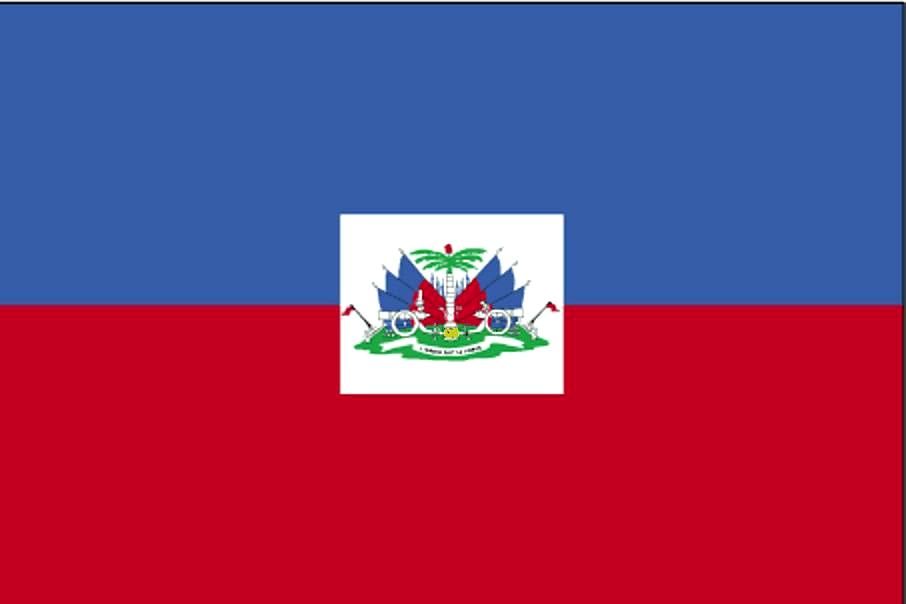Global Ministries says “NO” to military intervention in Haiti
In October, the government of Ariel Henry, Haiti’s de facto prime minister and president, called for a foreign military intervention— “the immediate deployment of a specialized armed force, in sufficient quantity” to stop the street gangs that are terrorizing the population and cutting off access to Haiti’s ports, most crucially the one that receives and stores Haiti’s imports of oil and gas. https://foreignpolicy.com/2022/10/31/haiti-us-intervention-gangs-united-nations/ However, the truth is that imperialist interventions, more than thirty years of the Duvalier dictatorship, military coups, and revolving doors in the political-economic arena have been drawing a bleak picture: poverty and crime accompany the almost null hope of economic growth in current conditions.
Since last summer, the situation has been getting worse. The violent death of then President Jovenel Moise at the hands of US and Colombian mercenaries has opened the door to a political and institutional vacuum, causing popular rejection of the “permanent” interim role of the current Prime Minister, Ariel Henry, and his tactics to avoid or delay the call for elections. In recent weeks, thousands of people have taken to the streets of Haiti to demand Henry’s resignation, to protest the increase in fuel prices and the cost of living, as well as to express their opposition to a new foreign intervention.
It is known that imperialist domination in Haiti has also used the collaborative role of the different governments, the state and bureaucratic apparatus, and the ruling classes and oligarchs. Thanks to this mechanism, it has managed to take over the exploitation of natural resources (bauxite), as well as the use of “economic and humanitarian aid”, blocking the alternative development of Haiti and allowing the current status quo to be maintained and reproduced. These years, they have used religious apparatuses, drug gangs, paramilitaries, political parties and NGOs to control and subdue any attempt at change and transformation. From the West, some development measures have sometimes been presented as an important advance for change, but they also have been tools of imperialism and foreign intervention. An example is the attempt to develop the tourist industry, however, a popular activist has correctly defined it as “the parasitic creation of an oasis in the middle of a desert hell for the majority of the population”. At this point, any military intervention could exacerbate the actual situation in the country. https://rebelion.org/las-manos-que-empujan-a-haiti-a-las-puertas-del-infierno/
Global Ministries signed a letter being circulated by the Center for Economic and Policy Research to President Biden on Haiti which opposes US military intervention in Haiti and calls instead for diplomatic and other means of support to address the situation.
Almost one hundred organizations signed the communication. Here is the text of the letter:
President Joseph R. Biden
The White House
1600 Pennsylvania Avenue NW
Washington, DC 20500
Dear President Biden,
As a diverse group of civil society, faith-based, humanitarian, peacebuilding, and diaspora organizations with strong ties to the Haitian grassroots, we write to express our profound concern about the proposed deployment of military force to Haiti and your administration’s support for it. We were heartened to see in your 2022 National Security Strategy a commitment to “not use our military to change regimes or remake societies,” and we encourage you to follow through on that commitment in Haiti.
We are acutely aware of the dire situation on the ground in Haiti. Nearly half the country is facing severe food insecurity and limited access to clean water; cholera, introduced by UN peacekeepers more than a decade ago, has rapidly reemerged; and fuel — critical to basic life, including water purification and electronic communication — is unavailable or prohibitively expensive. Compounding these issues, violence and insecurity have reached exceptional levels, and have particularly affected women, children, and the most marginalized.
As Haiti faced this growing and multifaceted crisis over the past year, thousands of Haitians have risen up to protest the deteriorating living conditions; the misgovernance of the de facto Prime Minister, Ariel Henry; and recent proposals for an international intervention. Leading civil society organizations have also strongly rejected the deployment of foreign forces to Haiti.
We write to once again encourage your administration to listen to Haitian civil society; respect the fundamental rights of the Haitian people to shape Haitian solutions; and reevaluate U.S. support to the de facto Prime Minister Henry, as that unconditional support has removed any incentive for him to negotiate with opponents in good faith. We are deeply worried that the deployment of a military force now will only perpetuate and strengthen Henry’s grasp on power, while doing little to ameliorate the root causes of today’s crisis.
We encourage your administration to reflect on the long history of international interventions in Haiti, and how those actions have served to undermine state institutions, democratic norms, and the rule of law. Previous interventions have had a costly human toll, including through rape, sexual exploitation, and extrajudicial killings. As Doctors Without Borders has warned, such an intervention would mean “more bullets, more injuries and more patients.”
Rather than supporting a military-led response to the multifaceted crisis in Haiti, your administration ought to use robust diplomacy to help resolve the situation, including through impartial support to Haitian-led political dialogue. The imposition of a United Nations sanctions regime targeting not just leaders of armed groups but also those who support such groups with financing, arms, and ammunition, is a welcome but insufficient step. The U.S can and should go further through the enforcement of U.S. laws on illicit arms trafficking, money laundering, and tax evasion, with a particular focus on those actors that are contributing to the violence. We also urge your administration to halt all deportations and expulsions to Haiti and redesignate Haiti for Temporary Protected Status (TPS).

